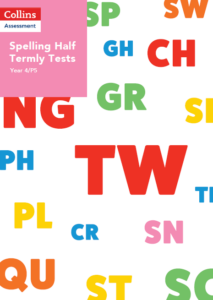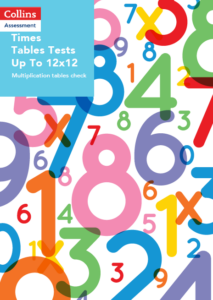Primary teacher and author, Elizabeth Dawson explains the benefits of introducing weekly tests in her school.
As a teacher, I know the difficulties that we all face when trying to keep up with the ever-changing demands of the job and the, at times, seemingly-endless list of skills we need our children to acquire and, more importantly, retain. On many occasions I have been guilty of expressing frustration following scheduled assessments: ‘We’ve done this and they knew it inside out. How have they forgotten how to do this?’ I’m sure we’re all familiar with these scenarios.

With an ever-increasing workload and a timetable which does not seem long enough to fit it all in, we are juggling with providing a depth, mastery level understanding through a rich curriculum experience and simply covering the scope of the curriculum itself (not to mention filling any gaps). At first, the thought of weekly assessments filled me with dread; yet another slot I needed to find in an already tight timetable. However, I have worked with this system for a number of years now and have found a number of benefits, which make it more than worthwhile.
How are weekly assessments implemented?
In my school, the task of weekly assessments has not replaced any of the assessment that already exists (assessment through questioning, marking etc.) but this process has simply supported and, indeed, enhanced this.
Weekly assessments do not need to be an onerous and time-consuming task and, in my experience, can actually be done relatively simply. To help with the timetabling issue, I have included a short assessment per week as part of maths (arithmetic), SPAG and reading sessions. As with all assessments, it is what is done with the information that makes the difference.
What are the benefits?
The weekly (or in some cases daily) assessments are used to inform planning and facilitate rapid intervention. Assessments are either carried out as a pre-learning task to identify what needs to be taught in order to bridge gaps in pupils’ knowledge or as a check for what has been learned in that week’s teaching and to aid the retention of key skills.
Apart from the fact that such up-to-date assessments provide teachers with a wealth of knowledge, there are benefits for the children too. Although many in the teaching profession do not like the idea of ‘teaching to the test’, we have to accept that tests will be part of a child’s education and we should be equipping them with the skills and knowledge to achieve at this.
One of the most important aspects of any child undertaking any test is for them to feel that they can achieve. Giving children regular practise at completing tests, independently identifying their targets and supporting them towards their goals gives the assessments more purpose. In my experience, children actually enjoy this process and relish the opportunity to drive their own progress
Elizabeth Dawson is a Primary teacher and author of Weekly Arithmetic Tests for Y6/P7.
Find out more about these tests and the rest of the Collins Assessment range at collins.co.uk/assessment






